Macao SAR Government Portal
News
Macau Cultural and Tourism Festival in Taiwan inspires creative journey 28 April 2014
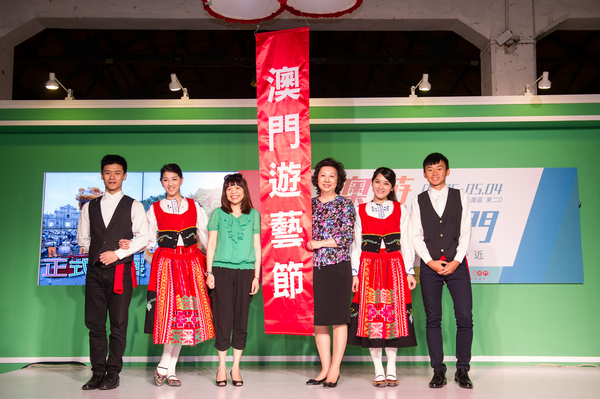
Macau Government Tourist Office (MGTO) joins hands with Macau Economic and Cultural Office in Taiwan, China to present Macau Cultural and Tourism Festival at Huashan 1914・Creative Park in Taiwan from 25 April – 4 May, inviting Taiwan residents to embark on a creative journey to Macau for a firsthand experience of the city's aroma and its perfect cocktail of Chinese and Western cultures through the four themes – "Art, Travel, Taste and Near", enjoying a relaxing getaway from day-to-day life. Through exhibition, lively performances and interactive courses, Macau Cultural and Tourism Festival presents the destination's colorful culture, culinary delights and wonderful travel experience for Taiwan residents. The festival also features Macau rock bands LAVY and BladeMark, Portuguese folk dance and a dance show around the theme of Macau Grand Prix. Local residents can sign up for free Macanese cooking class or DIY handicraft course in the event. The Macanese cooking class is taught by Paul Ho, a famous chef originally from Macau who has lived in Taiwan for nearly 20 years; whereas the DIY handicraft course lets both grownups and children hand-make mugs or rubber stamps imbued with the flavor of Macau, a great opportunity for families to enjoy a creative journey to Macau. Moreover, the festival combines its activities on the spot with the Macau Fun Fans page. By posting Macau trip photos on the aforementioned theme page online, visitors may find their photo works showcased at the photography gallery in the festival. Those who have completed the festival's activities online or at the Creative Park can enter the lucky draw for a chance to win a three-day individual-travel package or round-trip air tickets to Macau. The event offers chances for Taiwan residents to visit and experience Macau. Head of Macau Economic and Cultural Office in Taiwan, China, Nadia Leong Kit Chi remarked, "Traditional Chinese and Portuguese cultures have deeply influenced Macau and shaped the unique creative art industry in the city. Macau has been actively cultivating artistic and creative talents while hoping to promote exchange opportunities with Taiwan and let more Taiwan residents experience Macau's extraordinary glamour. We are very happy to have invited Macau's famous rock bands LAVY and BladeMark to perform in the event. We hope that Macau Cultural and Tourism Festival can introduce local people to Macau's singers, music and culture."
…
Employment Survey for January-March 2014
Information from the Statistics and Census Service (DSEC) indicated that the unemployment rate (1.7%) and the underemployment rate (0.4%) for January-March 2014 held stable as December 2013-February 2014. Total labour force was 384,200 and the labour force participation rate stood at 73.3%. Total employment reached 377,900, an increase of 1,900 from December 2013-February 2014. Number of the unemployed was about 6,400, similar to December 2013-February 2014; fresh labour force entrants searching for their first job accounted for 7.6% of the total unemployed, down by 2.8 percentage points. Compared with the fourth quarter of 2013, the general unemployment rate (1.7%) and the unemployment rate of local residents (2.3%) declined by 0.1 and 0.2 percentage points respectively. Total labour force registered an increase of 7,000; total employment rose by 7,500, with those aged 25-34 increasing by 5,100. Analysed by industry, employment in the Construction Sector and Wholesale & Retail Trade increased by 3,400 and 2,400 respectively. Median monthly employment earnings of the employed amounted to MOP13,000 in the first quarter of 2014, up by MOP700 quarter-to-quarter, with those engaging in Gaming and the Construction Sector earning MOP17,000 and MOP12,000 respectively. Moreover, median monthly employment earnings of the employed local residents held stable at MOP15,000.
…
MGTO presents “Icons‧Macau” – a new tourism element in town
Starting today (27 April), Macau Government Tourist Office (MGTO) is presenting the 3D Mapping Show "Icons‧Macau" at Macau Fisherman's Wharf for a period of 15 days, ready to add more variety to the attractions along the walking tour routes "Step Out, Experience Macau's Communities" and to fascinate visitors and citizens with more touching moments. The six-minute 3D Mapping Show "Icons‧Macau" is scheduled to take place for free admission at the Roman Amphitheatre of Macau Fisherman's Wharf every ten minutes from 8 p.m. to 10 p.m. daily during 27 April – 11 May. MGTO Director Maria Helena de Senna Fernandes, Macau Legend Development Limited Co-Chairman, Executive Director and Chief Executive Officer David Chow Kam Fai, MGTO Deputy Directors Cecilia Tse and Cheng Wai Tong, and Acting Director of Operations of Macau Fisherman's Wharf Kenny Iao officiated the kick-off ceremony of the 3D mapping show. MGTO introduced the first four walking tour routes under the theme "Step Out, Experience Macau's Communities" last September, encouraging visitors to explore the lesser-known quarters in Macau. The new routes are expected to divert visitors off the beaten tourist track as a way to alleviate over-crowdedness in popular districts and boost community tourism in Macau. Since then, MGTO has been striving to discover new elements to add along the tour routes while making great effort to promote the project. Artistic performances are currently available along the four walking tour routes. As for "Icons‧Macau", the 3D mapping show presents high-quality videos by projecting 3D images upon the background of three iconic architectures – the Ruins of St. Paul's, A-Ma Temple and Guia Lighthouse from the World Heritage "Historic Centre of Macau", thus showing audience the diverse scenery and unique charm of Macau as a travel destination. As one of the tourist attractions along the walking tour route "A Tour of Arts and Culture" under the theme "Step Out, Experience Macau's Communities", Macau Fisherman's Wharf is a relatively suitable location for the premiere of the 3D mapping show for testing at current stage. Depending on the feedback of citizens and visitors about the show, MGTO will consider staging the 3D mapping show at different local districts to add the glamour of community tourism and encourage visitors to spend more time in Macau. During the show period, questionnaires will be distributed to gather feedback from audience who will receive a souvenir in return. During the upcoming May 1st labour day holiday, "Icons‧Macau" will be a new choice of entertainment for locals and visitors in town. This press release is available at: http://industry.macautourism.gov.mo/en/pressroom/
…
APEC TMM8 co-ordination meeting held in Hainan
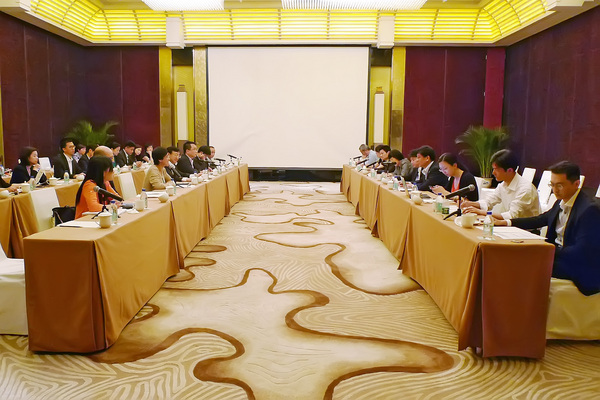
The 8th Asia Pacific Economic Cooperation (APEC) Tourism Ministerial Meeting, hosted by the National Tourism Administration (CNTA) and organized by the Macao Special Administrative Region Government, will be held in Macao in September. A government delegation, led by the Chief-of-Cabinet of the Office of the Chief Executive, Mr Alexis Tam Chon Weng, visited Sanya in Hainan Province for a co-ordination meeting to discuss with CNTA the details of the ministerial meeting to ensure its smooth running. The delegation arrived at Sanya on 25 April and was greeted by the Vice Chairman of the CNTA, Mr Du Jiang, in the afternoon at their resort hotel. Mr Du expressed his warmest welcome to the delegation's participation in the meeting in Hainan and full support to the Macao SAR Government in organizing the Tourism Ministerial Meeting and Mr Tam expressed his gratitude to the CNTA for their full support to Macao in organizing the meeting. Mr Tam said the 8th APEC Tourism Ministerial Meeting is one of the most important tasks of the Government this year. The organizing committee, formed in Macao, is now implementing all preparation works. It is hoped that the meeting would further enhance Macao's international status and influence, and promote Macao as a worldwide tourism and leisure center. At the co-ordination meeting this morning, the Director General of the Department of Tourism Promotion and International Communications, Mr Li Shihong, introduced the latest progress of CNTA's preparation for the meeting, while Mr Tam and the Director of the Macau Government Tourist Office, Ms Maria Helena de Senna Fernandes, reported on Macao's progress. During the two-hour co-ordination meeting, the parties discussed in-depth topics including protocol, media coverage, security, publicity and promotion, and preliminarily confirmed the proposal for each activity, achieving expected outcomes. The Macao delegation members attending the meeting led by the Chief-of-Cabinet of the Office of the Chief Executive, Mr Tam Chon Weng included Ms Senna Fernandes; the Director of the Government Information Bureau, Mr Victor Chan; the Director of the Protocol, Public Relations and External Affairs Office, Mr Fung Sio Weng; the Advisor to the Secretariat for Social Affairs and Culture, Mr Ng Peng In; and the Chief Constable (Crime) of the Public Security Police, Mr Ng Kam Wa. Representatives from the CNTA included the Director General of the Department of Tourism Promotion and International Communications, Mr Li Shihong; the Deputy Director of the Department, Ms Zhang Xinhong; the Head of the Research Division, Mr Xu Haijun; the Head of the Publicity Division, Mr Zhou Wenjie; the Head of the External Affairs Division, Mr Wang Jianshe and the Director of International Relation Division, Mr Feng Litao. Established in 1989, APEC, which currently has 21 members, is the highest level and most influential regional economic organization in the Asia-Pacific region. After hosting the 9th APEC Informal Leadership Meeting in Shanghai in 2001, China is again responsible for organizing the APEC Informal Leadership Meeting and its related ministerial meetings in 2014. The Macao SAR will host the 8th APEC Tourism Ministerial Meeting in September this year. With China once again hosting APEC after 13 years, it is of great significance for Macao to host the upcoming APEC Tourism Ministerial Meeting. This will be the highest level multilateral economic summit hosted by China under its new leadership. This is also the first time the APEC Tourism Ministerial Meeting is held in China. The choice of Macao as the venue for the meeting reflects the full support of the Central People's Government for the Macao SAR Government.
…
Macao Arts Festival presents outdoor programmes and premieres special documentary on April 30
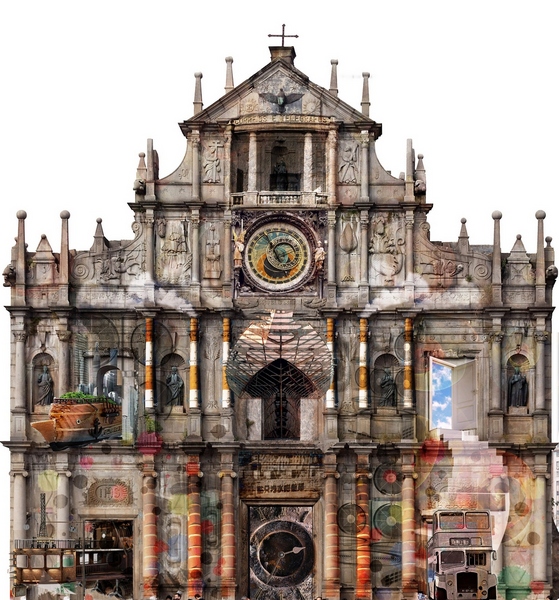
The Cultural Affairs Bureau will hold the 25th Macao Arts Festival from 2nd May to 8th June, during which period various free outdoor programmes will be available in different locations around Macao, staying close to residents and bringing exciting art programmes to Macao's communities. The Macao Arts Festival Silver Jubilee Opening Concert will take place at 7:30pm on 2nd May in Tap Seac Square. The Macao Orchestra will collaborate with local musical groups including the Macao Youth Symphony Orchestra Association, the Macau Band Directors Association, the Macao Percussion Association, the Macao Public Security Police Force Band, the Macao Polytechnic Institute Choir and the Macau Perosi Choir, to perform many classics under dazzling onsite lighting effects. It will definitely heat up the atmosphere for the opening of the Macao Arts Festival. Renowned Portuguese fado singer Carminho will perform Carminho in Macau at 8 pm on 4th May, with her soft voice giving the audience an unforgettable night. Since the 1950s, many international and Hong Kong movies have been shot in Macao; the Macao Arts Festival programme Macao in Movies will screen four excellent movies filmed in the territory at different times, namely 'Daughter of a Grand Household, 'Immortal Story', 'When I Fall in Love…With Both' and 'Marooned' on 4th May (Ponte e Horta Square), 6th May (Taipa Houses-Museum Auditorium), 8th May (Lou Kau Mansion) and 9th May (Albergue SCM), respectively. It is hoped that cinema can be introduced to the communities through this programme, displaying the unique culture and history of several locations. In addition, the Outdoor Performing Arts Showcase will take to the Iao Hon Garden from 6 pm to 10 pm for three consecutive days (9th – 11th May). The performance will gather various performing groups from Macao, Mainland China and overseas to provide a variety of cultural and art choices free of charge for audiences of all ages. On this occasion, performing groups and talented street performers will demonstrate their skills and interact with audiences to extend their artistic horizons. The closing programme - A Dream of Light - will use Macao's landmark the Ruins of St. Paul's as a canvas, presenting an outstanding visual show originally created by MAVA (Macau Audiovisual Alpha), the first local group to produce an architectural mapping show in Macao. Every night at 8 pm and 9 pm from 31st May to 8th June at the Ruins of St. Paul's, with stunning visual impact for the climax of the Festival event. Furthermore, in order to commemorate the Silver Jubilee Celebration, the organiser is specially planned and producing the Macao Arts Festival Silver Jubilee Commemorative Documentary. This documentary is not only a retrospect of the history and origins of the Macao Arts Festival but a record of the impressive memory of the cultural and art practitioners who once assisted in co-ordinating the Festival and participated in the performances, from which the general public can review the past glorious history and classic moments of the Festival. The total length of the series is over one hour and will be broadcast on TDM and TDM HD from 8:30pm–9:10pm and TDM Portuguese from 11:35pm–12:15pm on 30th April and 1st May. Residents can review the documentary on the Macao Arts Festival website the next day after the premiere or purchase it during the Macao Arts Festival in locations such as Tap Seac Square (during the Macao Arts Festival Silver Jubilee Opening Concert only), Macao Cultural Centre, Dom Pedro V Theatre and Old Court Building. For more information about the 25th Macao Arts Festival, please visit: www.icm.gov.mo/fam
…
Consumer Council released specific price survey results on oral care products and milk powder
For the implementation of Section 2b), Article 10, Law 4/95/M of 12 June, Consumer Council conducted its specific price surveys on oral care products and milk powder on 24 April. Results of the mentioned surveys have been uploaded to the Council's website (www.consumer.gov.mo) and are available in the Council's 'Supermarket Price Information Platform' iPhone and Android apps. For inquiry, please call the Council's hotline: 8988 9315.
…
International Museum Day 2014 – Museum Collections Make Connections
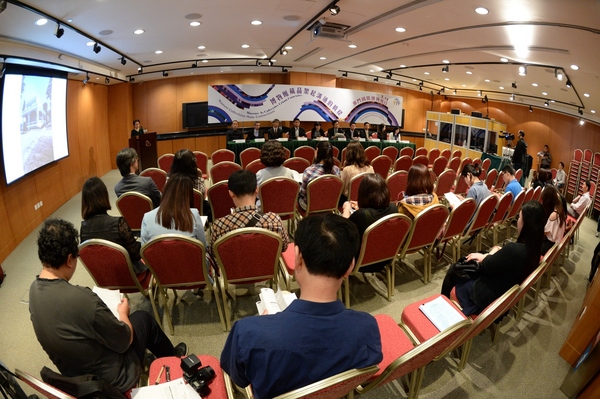
Museums are living institutions that help create bonds between visitors, generations and cultures around the world. Museums are constantly facing changes that bring them to reconsider their traditional mission and to find new strategies to attract visitors towards more accessible collections. Thus many museums revamp the traditional methods of presentation of their collections in order to involve the community and to remain in touch with their public. The museum is an institution that preserves and communicates the past, yet it is grounded in the present. In its very essence, it is a link between the generations, as it allows present and future generations to better comprehend their origins and history. This theme also emphasizes the collaborations between museums worldwide and their importance for cultural exchanges and the knowledge of the world's cultures.
To celebrate the annual International Museum Day on May 18, admission to all the museums in Macao will be free throughout different dates in May. Each museum will prepare a series of special features and promotional activities in May to allow residents and tourists to feel the unlimited influence of the museums in the society. For details on the free admission and special activities, please refer to the attachments or visit the Museums of Macao portal (http://www.museums.gov.mo).
The Press Conference of the Carnival of the International Museum Day Macau was held on 24 April, 2014 at 3:30pm at the Macao Science Center. Present at the press ceremony were Assistant Chief of the Fire Department, Sam Ka Hou, Chief Curator of Communications Museum of Macao, Wong Kam Ian, Head of the Cultural Facilities Division of IACM, Loi Chi Pang, Acting Head of the Nature Conservation and Studies Division of IACM, Un Tai Wai, Director of Maritime Museum, Wu Chu Pang, Director of Macao Museum of Art, Chan Hou Seng, Vice Director of Tung Sin Tong Historical Archives Exhibition Hall, Lei Keng Lam, Director of the Macao Museum of the Cultural Affairs Bureau, Chan Ieng Hin, Acting Head of Facilities Management Division of MGTO, Cheong Soc Fong and Head of the Education and Exhibits Department of Macao Science Center, Oscar Leong, who respectively introduced their activities. Seminars of International Museum Day, Macao 2014 will be held at the Communications Museum on May 2 and 3. Museum professionals and scholars from Hong Kong and Taiwan were invited to share their views on museums' hot topics with the audience. In the first seminar for museum professionals on May 2, Ms. SIT Karen, Chief Curator of Hong Kong Science Museum and Ms. PANG Maggie, Chief Manager of Film & Cultural Exchange, LSCD, Hong Kong will talk about "Old Topic, New Experience" and "Find a Way out of Conventional Marketing Approaches" respectively. For the open seminar held in the afternoon of May 3, Prof. CHOU Kung-shin, Ph.D., Formal Director of the National Palace Museum in Taipei, Chair Professor, Graduate Institute of Museum Studies of Fu Jen Catholic University will talk about "Museum and Museum Education" and, Mr. CHAN Shing Wai, Head of Conservation Office, LCSD, Hong Kong, will talk about "Museum & Conservation – The Behind-the-Scene Vision".
The Macao International Museum Day Fair 2014 will be held on May 4, from 3pm to 6:30pm, at the Taipa Houses-Museum. To celebrate the most important joint event of the year, the organizers have invited many neighboring cultural institutions to participate, including 10 museums and cultural institutions from the Guangdong Province: Guangdong Provincial Bureau of Cultural Relics , Guangdong Folk Art Museum, Shenzhen Museum, The Opium War Museum, The Yuan Suihuan Memorial Park, The East River Column Memorial Museum, Dongguan Museum, Foshan Museum, The Memorial Museum of Generalissimo Sun Yat Sen's Mansion, Keyuan Museum, Leisure and Cultural Services Department of Hong Kong Special Administration Region and its 19 subordinating museums, all of them are sending delegates to attend the event. The opening ceremony of the fair will be held at 3pm, and there will be a great variety of dynamic activities such as prize-giving interactive games and workshops in the fair. The Nature and Agrarian Museum will have a booth titled "Search of Migratory Birds – Observation of Birds in Wetland" and promote publications at concessionary prices. Tung Sin Tong Historical Archive Exhibition Hall will present film and interactive game. The Macao Museum of Art and the Handover Gifts Museum of Macao will provide three games "Take Happiness Home", "Contrast between Past and Present Days" and "Fortune Wheel of Treasure Puzzle" for those present at the event. The Grand Prix Museum and Wine Museum will provide the Macau Guia circuit simulator and the interactive game "Seeking Wine Museum" respectively. The Macao Science Center will present "The Cornstarch Fun Science Experiment" and "The Secret of the Digestive system Demonstration" to the public. The Maritime Museum will hold the "Workshop of Making Junk Model", while the Communications Museum will provide the interactive games "Message Decoding" and "Delivering through the City of Macao. The Fire Services Museum will organize a game focusing on the prevention of fire accidents. The Macao Museum will arrange "Cantonese Opera mask painting workshop for parents and children" and "Photographs with Children of Cantonese Opera". The Heritage Exhibition of a Traditional Pawnshop Business will host the game "The Secret of Macao Intangible Cultural Heritage". The Commemorative Gallery of the Macao Basic Law will set exhibition panels, and the Taipa Houses-Museum and the Museum of Taipa and Coloane History will present "Charming Portuguese Craft – Workshop on Decoupage", as well as the "Stories of Tea – workshop on Making 3-D Pop-Up Book with Exported Chinese Tea-themed Paintings".
In addition to the activities that illustrate the characteristics and interactivity of museums from Guangdong Province, Hong Kong and Macao, the Fair will also include the drama "Macao Nostalgia", "Juveniles' Cantonese Opera Performance", children's Portuguese folk dance, Portuguese band "80&TAL", etc. There will also be lucky draws with fabulous prizes, including Tablet PC, digital cameras, book coupons, and Taiwan round-trip air tickets sponsored by TransAsia Airways. Free shuttle bus service will be scheduled as follows: Read attachment! The 19 organizers of the International Museum Day, Macao 2014 include: Natural and Agrarian Museum, Grand Prix Museum, Museum of the Holy House of Mercy, Tung Sin Tong Historical Archive Exhibition Hall, Heritage Exhibition of a Traditional Pawnshop Business, Fire Services Museum, Maritime Museum, Communications Museum of Macao, Museum of Taipa and Coloane History, Handover Gifts Museum of Macao, Lin Zexu Memorial Museum of Macao, Macao Science Center, Macao Tea Culture House, Dr. Sun Yat Sen Memorial House in Macau, Commemorative Gallery of the Macao Basic Law, Macao Museum, Macao Museum of Art, Wine Museum and the Taipa Houses-Museum.
…
“Secure Electronic Postal Box – SEPBox” of Macao Post All lucky draws have been successfully concluded
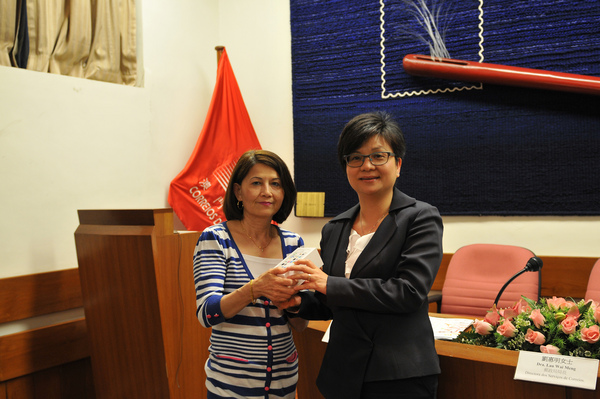
Six lucky draws of the "Secure Electronic Postal Box – SEPBox" have been successfully concluded. The sixth round lucky draw was held on 9 April 2014 and the winner was Mr. RUI DOS SANTOS IU who won a brand new smartphone – iPhone5S. Thanks to all individuals and organizations for kind support, this activity received enthusiastic responses from subscribers. Public can still register and activate their "Secure Electronic Postal Box – SEPBox", using web or mobile application to receive electronic messages. For more information of the "Secure Electronic Postal Box - SEPBox", please visit our website; http://seps.macaupost.gov.mo. For enquiry, please contact us at tel.: 28720029, or at email: support@seps.macaupost.gov.mo
…
Consumer Council released its latest ‘Supermarket price survey’ for April Surveyed spots included supermarkets in São Lázaro and São Lourenço Parishes
Consumer Council conducted its sixth 'Supermarket price survey' in April on 23 April for the implementation of Section 2b), Article 10, Law 4/95/M of 12 June. Surveyed locations included 9 supermarkets in São Lázaro and São Lourenço Parishes. The latest 'Supermarket Price Survey' is now available on Consumer Council's website (www.consumer.gov.mo), and the 'Supermarket Price Information Platform' iPhone and Android apps. The survey is also available free of charge at the offices of Consumer Council, IACM's Iao Hon and S. Domingos Markets, bookstores and libraries. Consumers may also access the resources through WAP channels on their mobile phones. With reference to the local six parishes and the number of supermarkets in each parish, the Council has divided around 100 supermarkets into 8 areas for price collection. The Council collects prices from these supermarkets for the provision of a more comprehensive database for consumers to check price discrepancies and make price comparisons according to their desired locations. For inquiry, please call 8988 9315.
…
IFT 2014/15 Evening Diploma and Degree Programme Starts Receiving Applications
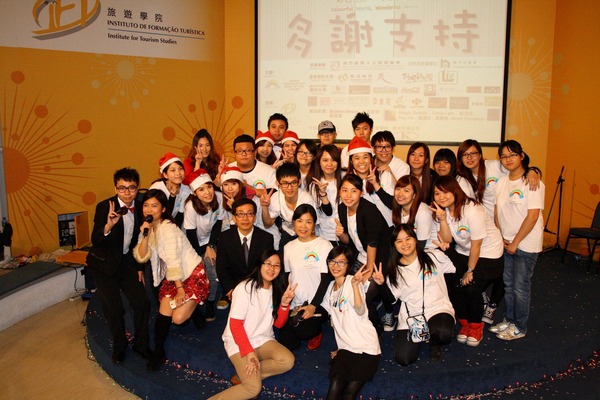
IFT starts receiving applications for (1) Evening Diploma and Degree Programmes in Hotel Management and Tourism Event Management, (2) Culinary Diploma in Western Culinary Skills and Pastry and Bakery from 28 April to 9 May. Duration of the Diploma Programmes is from 1.5 – 2 years while Degree Programmes for 4 years. Courses are arranged in modular format with Chinese (Cantonese or Mandarin) as instruction medium while practicum and internship are integrated in the programmes for students to acquire hands-on experience in related fields. Main target of the programmes are those who would like to pursue their career in hospitality, MICE and food & beverage industry, and of course in-industry professionals to upgrade themselves. To cope with the rapid tourism development in Macao and the Asia Pacific region, IFT sees the needs of offering evening programmes to equip more students with professional knowledge and technical competence in preparation for their future leadership responsibilities in the industry. In addition, the evening programmes provide another channel for working adults to further their studies so as to enhance their competitiveness. The curriculum of evening degree programmes emphasis on the balance between theory and practice by providing as many practical learning chances for students as those in Daytime Programmes. The programmes launched in 2010, expecting the first batch of graduates in October this year. Although students of evening programme mostly are working adults, some still managed to make use of IFT's international network to conduct 6-month exchange and internship programmes in Denmark (South Denmark University) and USA (Disney World Florida) to broaden their horizon. The 18-month culinary diploma aims to train up professional chefs and equips students with technical skills plus knowledge of nutrition, food hygiene and, occupational health and safety, giving them a full picture of kitchen operation and management. The 384-hour internship at restaurant kitchens as classrooms allows students to experience the real exciting workplace. Those who are interested could visit IFT website http://www.ift.edu.mo/admission_web/en/index.html or contact admission@ift.edu.mo for enquiry.
…

